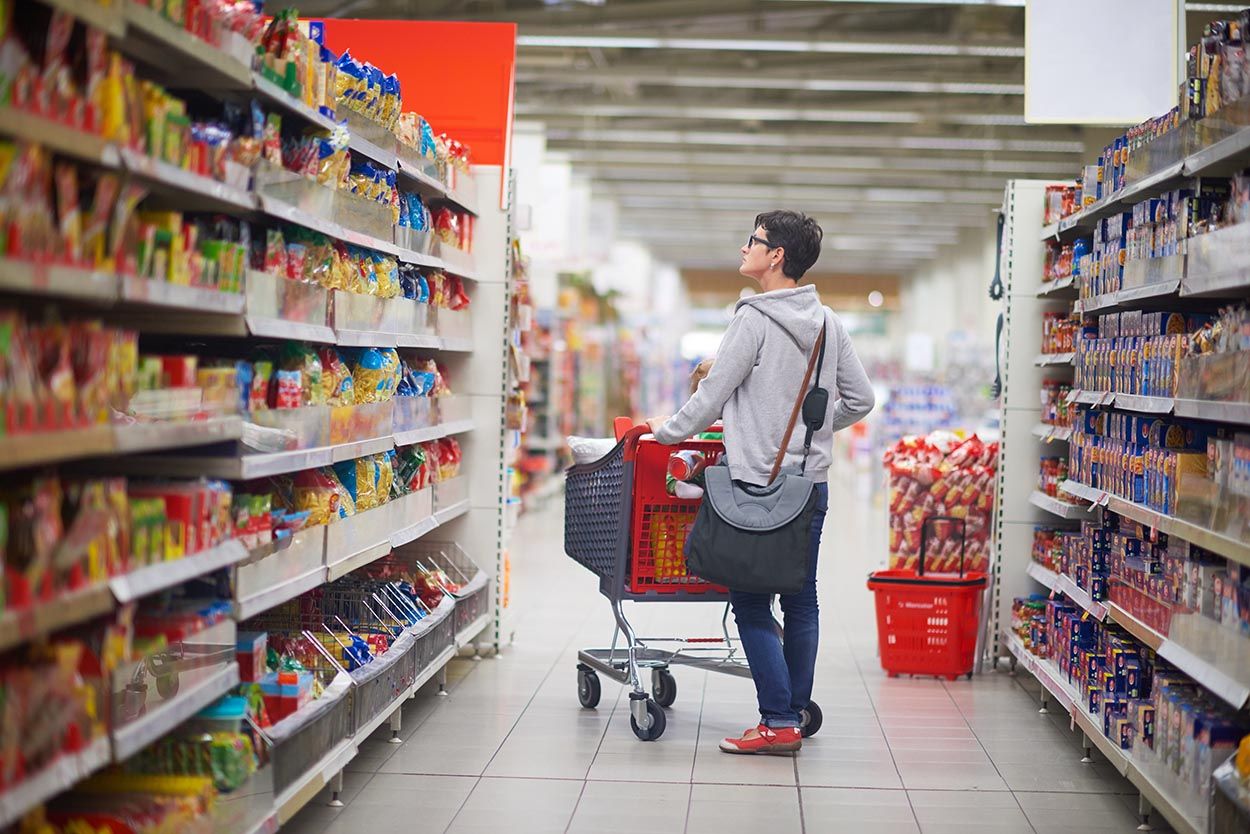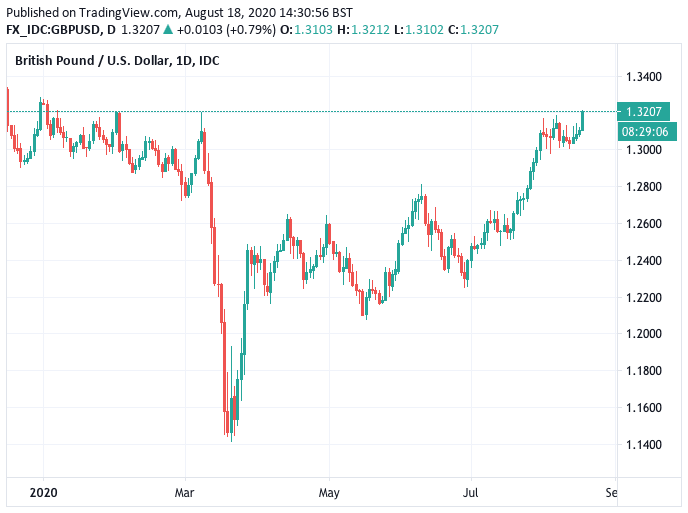Hotter than Expected Inflation Underpins Pound-Dollar Rate's 2020 Highs
- GBP/USD at 2020 high
- CPI rises faster than expected
- Fuel costs, entertainment demand push prices higher
- But inflation to fall back sharply says one economist

Image © Adobe Stock
- GBP/USD spot rate at time of writing: 1.3257
- Bank transfer rates (indicative guide): 1.2890-1.2980
- FX specialist rates (indicative guide): 1.3035-1.3140
- More information on bank beating rates available to you, here
UK inflation for July came in hotter than expected, a development that will likely ensure the Bank of England maintains a cautious approach to cutting interest rates and boosting quantitative easing which is in turn supportive of Sterling.
UK CPI inflation for July rose 1.0% year-on-year which is higher than the 0.6% expected by markets and an increase in the 0.6% recorded in June.
The rise in inflation from June to July was 0.4%, which was higher than the previous month-on-month gain of 0.1% and greater than the -0.1% figure expected by the market.
Core CPI - which is a more 'organic' measure of inflation in that it strips out globally-driven variables such as movements in oil prices - was at 1.8%, which is well ahead of the 1.3% expected by markets and will certainly give the Bank of England pause for thought.
Following the release fo the data we see the Pound-to-Dollar exchange rate adding to the previous day's gains of 1.0% to be quoted at 1.3261, which is Sterling's highest level for 2020.
Above: GBP/USD has rallied on broad Dollar weakness, and improving UK-specific drivers
“Sterling is riding high after receiving a surprise dose of inflationary normality," says Karim Yousfi, Chief Global Strategist at Audacity Capital. "Against all expectations, Britain has stepped back from edge of the deflationary abyss. The sighs of relief will be loudest at the Bank of England, which had forecast a fall in consumer inflation, and was facing calls for it to push interest rates into negative territory for the first time in its 325-year history."
"Today’s upward surprise in inflation data indicates a level of pent-up demand in consumers during the lockdown period. The positive reading will help provide additional support to a recently buoyant sterling and could present an opportunity for participants to take profit on GBP balances accumulated throughout the pandemic,” says Sam Cooper, Vice President of Market Risk Solutions at Silicon Valley Bank.
According to the ONS, recreation and culture continues to make the largest contribution to inflation from April onwards as prices for computer games, games consoles and children’s toys rose as a result of the restrictions placed on households caused by the coronavirus. The contribution from recreation and culture reduced in May but increased again in June while in July the contribution was 0.33 percentage points.
The second-largest upward contribution to prices came from transport, according to the ONS. Most of this movement came from fuels and lubricants. Following falls in petrol and diesel prices in February 2020 and since lockdown started, prices at the pump have started to increase as movement restrictions eased.
While prices have come in hotter than expected, for now economists don't see the start of a more sustained trend of rising inflation.
"The unexpected sharp rise in CPI inflation from +0.6% to +1.0% came as a bit of a surprise, but it is unlikely to mark the start of an upward trend. CPI inflation still looks on track to fall to within a whisker of zero in August," says Ruth Gregory, Senior UK Economist at Capital Economics. "Some of these movements should be at least partially reversed over the coming months."
Gregory says the effects of the cut in the VAT rate for hospitality in August should see prices ease going forward, as will the commencement of the government's Eat out to Help Out scheme.
"If 50% of eligible businesses pass on the VAT cut and 50% participate in the EOHO scheme, then inflation may fall by 0.7ppts. If the pass-through of both the VAT cut and the EOHO scheme is 75% rather than 50%, then inflation may be 1.1ppts lower than otherwise. Either way, that would be enough to push inflation back down towards zero. And we think it will be a few years before the economy is strong enough to raise CPI inflation to the 2% target," says Gregory.
Audacity Capital's Yousfi says the return of inflation to more normal levels is by no means a return to economic normality as Household consumption collapsed by 23.1% in the second quarter and still has a mountain to climb, with the average British worker currently seeing their paypacket shrink for the first time in two decades.
“So with sterling on a roll after its strong start to the week and UK equities being boosted by yesterday’s record highs on the Nasdaq and the S&P 500, the markets continue to thrive in an alternative reality, seemingly decoupled from the pain being felt on the British high street,” says Yousfi.

